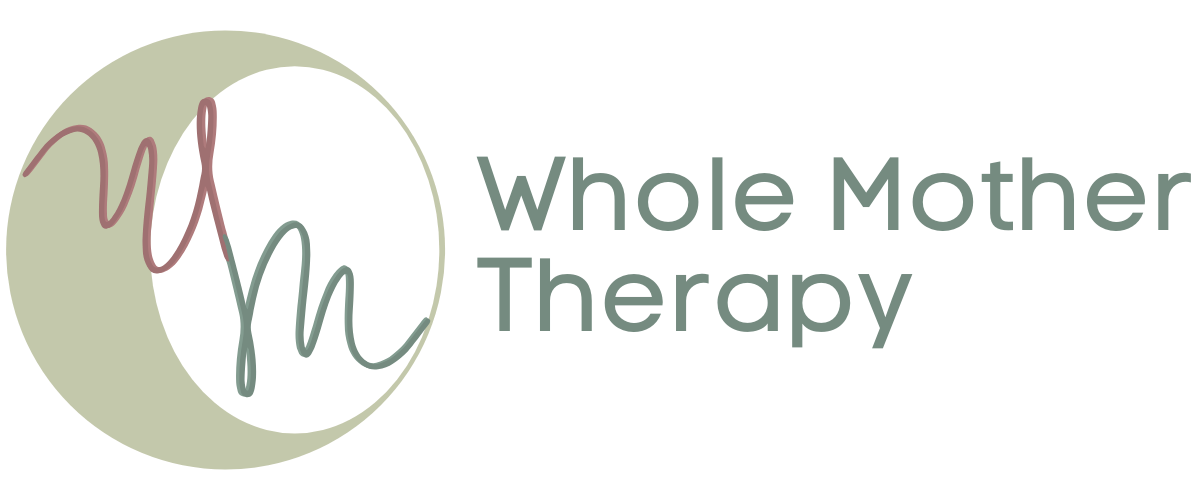Sex and Intimacy After Birth
Becoming a mother, a parent, a caregiver is a comprehensive transformation. After the birth of a baby, our body, our mind, and our emotions must adapt to a new normal. The postpartum period requires major shifts in how we think and feel while also offering opportunities for growth and discovery. Both joys and challenges come with the new territory.
When we confront difficult moments, we naturally seek comfort and connection. We turn to our partners for collaboration and for emotional and physical support. We ask them to hold us close and listen as we express the complexities of our emotions. We also of course share the beauty and wonder of life with our partner. After childbirth, these channels of connection can become strained because of changes in the body, a lack of time, added logistical stresses, and the raw feelings surrounding this life-changing experience.
Sex and Intimacy Are Important Parts of Any Relationship.
Sex and intimacy are expressions of the bond between people. They’re a source of pleasure, relaxation, and connection. They allow us to express raw emotion in ways that words can’t. Soft caresses, holding hands, passionate kisses—all these things communicate connection, comfort, and love.
Yet just as our identity changes after birthing a child, so do our bodies and our emotions. Our body looks and feels different than it did before. The baby’s former home, our body now reflects the nourishment it provides. It’s not unusual to feel disconnected from our bodies or to carry new insecurities and doubts about how attractive we are post-birth. Coming to terms with our new motherhood/parenthood/caregiver role brings complicated feelings with it.
Our Priorities Shift From Us to Our New Baby
After childbirth, our time is no longer entirely our own. We are now a mother, a parent, a caregiver. And an immense amount of responsibility comes with caring for this tiny human. It’s natural to feel overwhelmed and to have much less time and less energy available for affection, sex, and intimacy. We want to feel connected to our partner but don’t have the reserves to invest in it.
To a large extent, our body is no longer our own either since it’s nourishing another. We are constantly being touched, pinched, and prodded by our little ones. Our body can become oversaturated with touches it once welcomed, leaving us feeling exposed and uncertain. Being “touched out” can mean feeling uncomfortable in our body or being uninterested in sex and intimacy. Affection and touch that was once natural, organic, and passionate can feel forced or performative. Even when we feel driven to show our love, try and connect, or be intimate with our partner, our mind and body are often too tired and unfocused to make it happen. This can sometimes leave both partners feeling disappointed, or even lonely.
Connection Is the Foundation of This Journey.
Talking with our partner is an essential form of connection that can help fill the gap. We can sometimes feel alone as our body becomes a source of nourishment and a place of comfort for our little ones. Our partner can remind us that we are loved and desired. We can tell them our fears, our desires, our insecurities. Sharing the raw emotions that come with being a new parent can be painful, but it’s freeing. Bonding over our shared experiences of new parenthood is a special form of intimacy.
We Don’t Need to Follow Society’s Expectations for Us and Our Bodies.
Society sets largely unrealistic expectations for us and our bodies after childbirth. Our body is not meant to be ready for intimacy right after birthing a baby. It takes time, and there’s no one timeline that fits all birthing people. Far too many mothers and caregivers are made to feel inadequate or as if they’re failing if their relationship isn’t “back to normal” within weeks of having a baby. This is a ridiculous standard.
These standards, myths, and expectations are a function of the patriarchal systems that have long devalued the experience of motherhood. They are neither supportive nor validating for mothers, caregivers, and birthing folx. We don’t need to measure ourselves by these harmful expectations. Postpartum intimacy can look and feel very different from mother to mother and from moment to moment. The key is that we find the types of connections that feed and serve us in the ways we need at the time we need them. It’s always shifting.
Seeking Out Extra Support When You Need It.
When you’re struggling postpartum with sex and intimacy, it can feel as if you’re struggling alone. You experience a flood of feelings and concerns that you can’t seem to make sense of, even with your partner’s support. Postpartum support in Pasadena, CA, can help you on your journey toward reconnecting with your partner and with yourself.
With online therapy in California, you can find healthy ways to release your emotions. This will allow you to find some clarity and peace in your postpartum journey. A skilled, compassionate online therapist can help you find the words to identify and express your challenges and concerns. They can provide guidance on how to connect with yourself and your partner again. Online support groups in California can help you find connections with others who have gone through similar experiences. These groups provide mothers, caregivers, and birthing folx like you with a safe space to talk openly about your postpartum journey and find healing.
INTERESTED IN ONLINE THERAPY IN CALIFORNIA?
Navigating our transformed identity after childbirth in the realm of intimacy and sexuality can evoke feelings of confusion and overwhelm. This process demands a secure and supportive environment for exploration, revelation, and personal growth. Seeking guidance during this pivotal phase of motherhood/parenthood can be hugely beneficial in fostering resilience and confidence. Embracing the nuances of postpartum is a unique journey, reshaping us in profound and meaningful ways. At Whole Mother Therapy in Pasadena, CA, our caring therapists extend unwavering assistance, equipping you with tools and insights to embark on a path of healing and self-discovery. With our adept understanding of emotional wellness and postpartum dynamics, we empower individuals, partners, and couples to unearth clarity and inner strength while traversing the intricate landscape of postpartum sexuality and parenthood. To explore online therapy and/or online pregnancy and postpartum support groups, simply follow the steps below.
Learn more about us and online therapy in California.
Get the support you need from an online therapist.
OTHER SERVICES WHOLE MOTHER THERAPY OFFERS
Our Pasadena-based online therapy practice offers a variety of mental health services to support individuals, single parents, couples, and families. Our services include individual therapy for new parents, postpartum anxiety treatment, therapy for birth trauma, therapy for infant and pregnancy loss, therapy for infertility, postpartum depression support, marriage counseling and couples therapy for new parents, counseling for parental burnout and overwhelm, and online therapy in California for new and expecting parents.
We also offer an eight-week in-person Sacred Motherhood Circle to honor the transitions and transformations of motherhood. And we hold several support groups, including an online pregnancy support group and an online postpartum support group. Finally, you can read more about our services, values, and resources on our therapy blog.
As an inclusive practice with BIPOC and queer practitioners, we want you to know that this is a safe and affirming space. Our practice is LGBTQIA+-allied and welcomes diversity of race, religion, sexual orientation, and gender identity. When you’re ready for support, we hold a healthy, inviting space for you to heal, grow, and develop with us.



